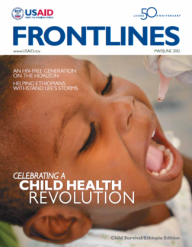 Each year the Every ONE Race and the Great Ethiopian Run promote a half-marathon along the Rift Valley’s Lake Awassa. USAID sponsored the race in 2011 to mark its 50th anniversary in Ethiopia and to promote the goal of the Every One Campaign,
Nena Terrell, USAID
Each year the Every ONE Race and the Great Ethiopian Run promote a half-marathon along the Rift Valley’s Lake Awassa. USAID sponsored the race in 2011 to mark its 50th anniversary in Ethiopia and to promote the goal of the Every One Campaign,
Nena Terrell, USAID
 Each year the Every ONE Race and the Great Ethiopian Run promote a half-marathon along the Rift Valley’s Lake Awassa. USAID sponsored the race in 2011 to mark its 50th anniversary in Ethiopia and to promote the goal of the Every One Campaign,
Nena Terrell, USAID
Each year the Every ONE Race and the Great Ethiopian Run promote a half-marathon along the Rift Valley’s Lake Awassa. USAID sponsored the race in 2011 to mark its 50th anniversary in Ethiopia and to promote the goal of the Every One Campaign,
Nena Terrell, USAID
We are on the front lines of one of the quietest revolutions in human history. It is not marked by upheaval, bloodshed, frantic news coverage or impassioned debate.
In the last 50 years, we have revolutionized child health. In a half century of ever increasing population pressures, we are saving more children and, more importantly, a higher percentage of children than ever before. Our revolution has brought about happier parents, smaller households and children with the brightest futures yet.
In fact, between the time that President John F. Kennedy brought USAID into being and the moment you are reading this sentence, child mortality has dropped by an astonishing 70 percent globally.
The successes that we have had with child mortality run along well-documented lines. We have had success because we know what is causing children to die and we know what to do about it. It starts with giving mothers the power to get pregnant on their own terms, ensuring the healthy timing and spacing of pregnancy. While mothers are pregnant, we ensure that their children do not get HIV or malaria and receive the proper nutrition to be born healthy and strong.
Once the baby is out in the world, we provide an extremely effective cadre of vaccines that provide immunity from a host of deadly diseases to over 100 million children a year. USAID deploys oral rehydration therapy to combat diarrhea, and now almost a billion episodes of childhood diarrhea are treated with this lifesaving supplement every year.
Related Content
There is a more sophisticated and capable network of health-care providers globally than ever before, and they treat more than 75 million cases of childhood pneumonia annually. Micronutrients that cost pennies are saving hundreds of thousands of children each year and are radically increasing the quality of life for many, many more.
The numbers have been dropping steadily for decades, and if we did nothing new, we would still see progress. But that is not enough. The moment to do more has arrived. It is time to create the next wave of the child-survival revolution. With greater political and financial commitment, we can parlay this progress into a shared vision to end all preventable child deaths.
The time is right for this call to action. With the tools that we have at our disposal and the research capacity that we have at our fingertips, we can make it so that a child born in sub-Saharan Africa has as equal an opportunity to survive as one born in the United States. We need to marshal and sustain the political will to focus on the health of future generations.
Right now, new health-care interventions have created the opportunity to deliver highly sophisticated care at the community level. This new technology, which is either already in the field, like using mobile phones to deliver lifesaving information, or can soon be made available, like malaria vaccines that are currently in trials, has arrived at the same time that an increasing focus on girls’ health, education and economic development has made the community more prepared than ever to make a healthy future a reality.
Our country partners are delivering in ways they never have been able to before. India went without a new case of polio for the first time ever last year. Ethiopia has put together a cadre of community health workers that is a model for the developing world. The list goes on and on.
The most wonderful thing about our efforts in child health is the cascade of effects that it sets off. Healthy children create smaller families. Smaller families have better economic outcomes and greater education. Healthy, well-educated families create healthy, well-educated children. With the proper encouragement, we can set off a reaction that pays dividends for generations to come.
Reaching our goal won’t be easy. We need to harness the power of political will and the international community. Conflict-prone areas lag well behind peaceful neighbors on all health indicators. But for the first time in the course of human history, we can see the finish line. Now is the moment to sprint toward it with arms raised in victory.










Comment
Make a general inquiry or suggest an improvement.